How to Raise Healthy Backyard Chickens: A Beginner’s Best Practices Guide
- March 8, 2024
- 29 comment
Raising chickens offers numerous benefits, from the supply of fresh eggs and meat to the pleasure of nurturing these engaging animals. This activity has gained popularity among both city dwellers with backyard coops and those in rural areas with more extensive setups.
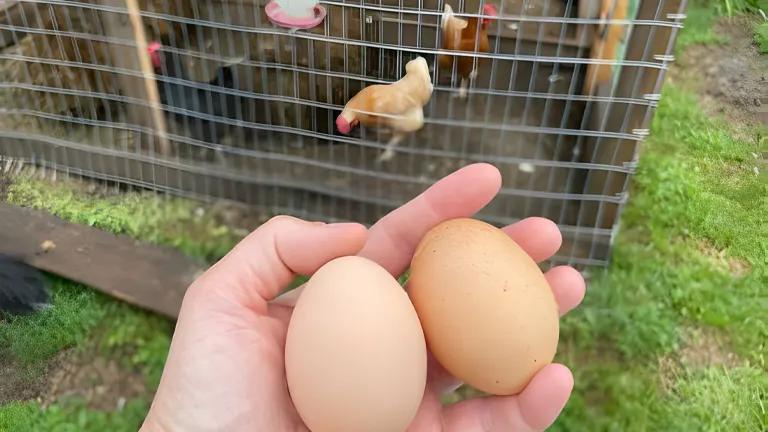
To embark on a successful chicken-raising journey, it’s crucial to select the right breeds based on your goals—be it egg production, meat, or both. Creating a safe, comfortable environment for your chickens is essential; this includes a predator-proof coop, adequate space for roaming, and proper nutrition tailored to their life stage.
Regular health checks and preventive care are paramount to ward off diseases and parasites. Whether you’re starting with chicks or mature birds, understanding their needs and behaviors will ensure a thriving flock. This guide aims to equip you with the necessary knowledge and tips to make your poultry project rewarding and fruitful.
Step By Step Guide to Raising Chickens:
- Hatchery Selection
- Brooding Setup
- Feed and Water
- Housing and Security
- Health Management
- Regulations and Ethics
- Community and Learning
Selecting Your Chickens: Breeds Matter
When starting your flock, the choice of breed is crucial. Layers, such as the Rhode Island Red or Leghorn, are optimal for egg production. For meat, consider broilers like the Cornish Cross.
Dual-purpose breeds like the Plymouth Rock or Sussex offer the best of both worlds. Understand the temperament, egg production rate, and environmental needs of each breed to make an informed decision.
1. Hatchery Selection
The choice of hatchery, such as Murray McMurray Hatchery, matters greatly. Not only does it affect the health and quality of your chicks, but good hatcheries offer invaluable advice and support for first-time chicken keepers.
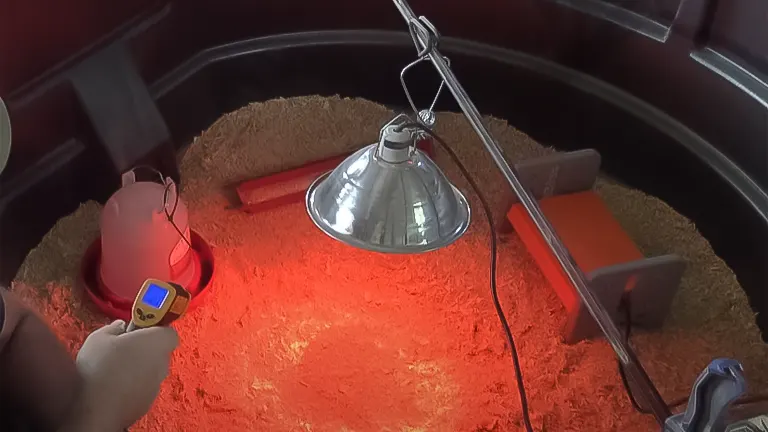
My experience with McMurray has been nothing short of excellent, from the health of the birds received to their customer service.
2. Brooding Setup
A proper brooder setup is essential for keeping chicks warm and safe during their first weeks of life.
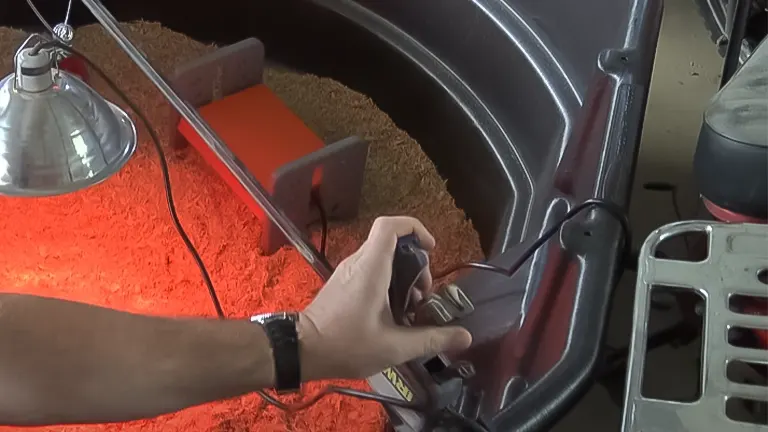
I’ve learned the hard way that temperature regulation is crucial; too cold and the chicks huddle and could perish, too hot and they spread out and could suffer from dehydration.
Equipment like heat lamps and warming plates, along with a spacious, clean brooder, makes all the difference.
3. Feed and Water
Investing in the right feeders and waterers that minimize waste and prevent drowning is a game-changer. Feed quality also plays a significant role in the health and growth rate of your birds.
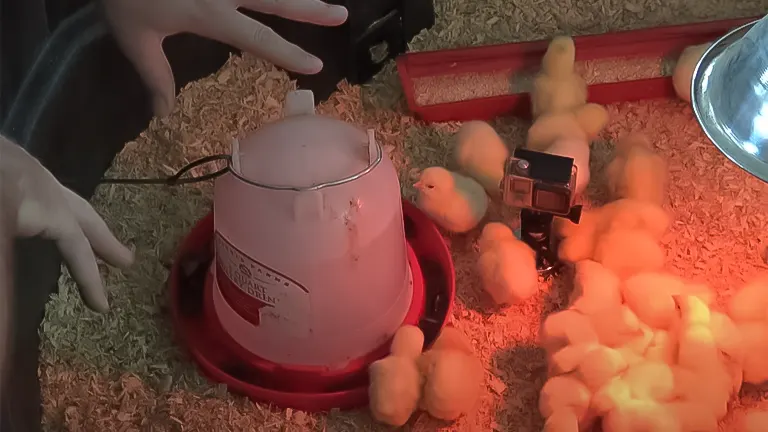
Opting for organic feeds from local suppliers, like Reedy Fork Farm, has supported not only the health of my chickens but also the sustainability of local agriculture.
4. Housing and Security
Whether it’s a stationary coop for layers or a mobile unit for pasture-raised meat birds, ensuring your chickens have a safe, clean, and spacious home is vital.
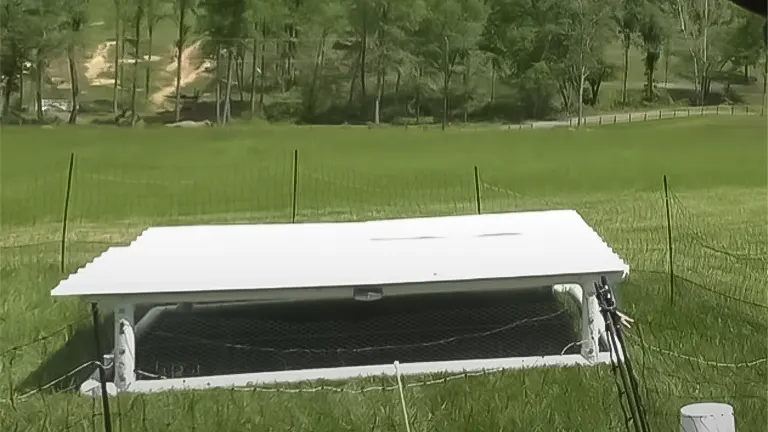
Protection from predators is a constant concern; employing strategies like automatic doors, predator-proof fencing, and strategic lighting can safeguard your flock effectively.
5. Health Management
Observing your flock daily is key to catching and addressing health issues early. From treating the inevitable ‘pasty butt’ in chicks to managing parasites in adults, a proactive approach to health care keeps your birds thriving.
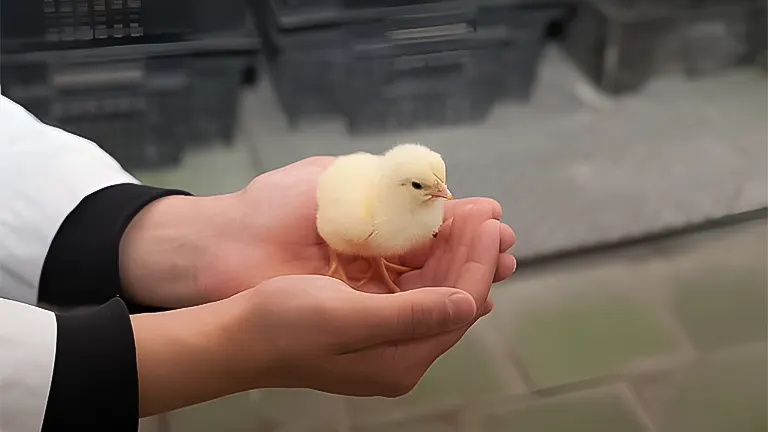
Regular deworming and external parasite control, along with clean living conditions, are fundamental practices.
6. Regulations and Ethics
Understanding local regulations and ethical considerations is part of responsible chicken ownership. This includes managing noise and odor, ensuring humane treatment, and considering the environmental impact of your poultry practices.
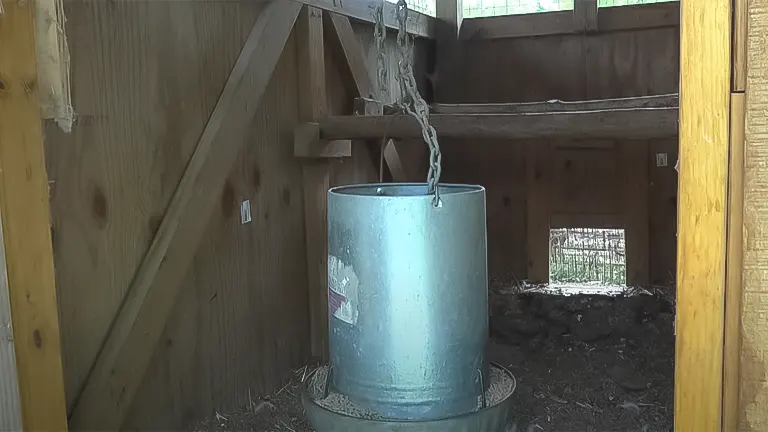
Ethical breeding, processing, and care practices not only ensure compliance with laws but also align with a sustainable and humane approach to farming.
7. Community and Learning
Finally, engaging with the chicken-keeping community, whether through local farming groups or online forums, has been invaluable.

Sharing experiences, challenges, and successes with fellow poultry enthusiasts has not only expanded my knowledge but also provided a supportive network to navigate the ups and downs of chicken farming.
Pros and Cons
Pros
- Enhanced Flock Health: Moving the coop allows chickens access to fresh grass and insects, which improves their diet and overall health.
- Natural Fertilization: The rotation of the coop across different areas helps distribute chicken manure evenly, which acts as a natural fertilizer, enhancing soil quality over time.
- Pest Control: Chickens foraging on fresh ground can help control pests and reduce the need for chemical treatments in your yard.
- Reduced Disease Risk: Regularly changing the coop’s location minimizes the buildup of droppings, which can harbor parasites and diseases, thus reducing health risks for the flock.
Cons
- Physical Effort: Moving the coop requires physical effort, which might be challenging for some keepers, depending on the coop’s design and the terrain.
- Potential Stress for Chickens: Regularly changing the environment can be stressful for some birds, particularly those that prefer routine.
- Risk of Escape: As the coop moves, there’s always a small risk that chickens may escape during the transition, especially if the fencing is not adequately secured.
- Inconsistent Egg Laying: Some hens may be temporarily unsettled by the move, leading to a brief drop in egg production as they adjust to their new surroundings.
Additional Tips
- Regular Health Checks: Periodically inspect your chickens for signs of illness or distress, including changes in appetite, behavior, or appearance. Early detection is key to preventing the spread of disease.
- Varied Diet: In addition to high-quality chicken feed, provide a variety of fruits, vegetables, and grains to diversify their diet, which can lead to healthier and happier chickens.
- Predator Deterrence: Beyond securing the coop, use natural deterrents like planting marigolds (which some pests dislike) around the coop and employing guardian animals if feasible.
- Dust Bath Areas: Ensure there’s a designated area for dust baths, crucial for chicken hygiene and parasite control. You can create a dust bath using a mix of sand, diatomaceous earth, and wood ash.
- Seasonal Care: Adjust your care routine with the seasons, such as increasing ventilation in summer to prevent overheating and adding extra bedding in winter for warmth.
Related Articles:
- Best Bedding For Chickens
- Best Safe Chicken Coop Heater
- 8×8 Chicken Coop Plans
- Turning a Shed Into a Chicken Coop
- How to Make a Chicken Coop Out of Pallets
- Best Sand for Chicken Coop
- How To Insulate a Chicken Coop
- How To Heat a Chicken Coop
- How To Keep Water from Freezing in Chicken Coop
- How to Build a Chicken Coop
- How To Build Chicken Nesting Boxes
- How to Raise Happy and Healthy Chickens in Your Backyard
- When Can Chicks Go Outside? Timing and Tips for a Smooth Transition
- 12 Reasons why Ducks are Better than Chickens
- Best Automatic Chicken Coop Doors 2024: Expert Reviews & Buyer’s Guide
- Best Fans for Chicken Coop 2024: Effective Cooling Solutions Reviewed
- Best Automatic Chicken Coop Doors for the Money 2024
Final Closing Remarks
In conclusion, raising chickens is a fulfilling endeavor that connects you to your food source, teaches responsibility, and can even provide entertainment. However, it’s not without its challenges, requiring dedication, research, and a willingness to learn and adapt. Whether you’re interested in fresh eggs, meat, or simply the pleasure of keeping these fascinating birds, armed with the right knowledge and resources, anyone can embark on this rewarding journey.
Frequently Asked Questions
- What Are the Best Chicken Breeds for Beginners?
Ideal beginner breeds include the Rhode Island Red, Plymouth Rock, and Orpington. These breeds are hardy, friendly, and lay a good number of eggs. Your choice should be based on whether you want chickens for eggs, meat, or as pets. - How Many Chickens Should I Start With?
A small flock of 3-6 chickens is manageable for beginners, providing a steady supply of eggs. Remember, chickens are social animals and thrive in groups, so never keep just one. - What Kind of Housing Do My Chickens Need?
Chickens require a coop that protects them from the elements and predators. Each chicken needs at least 3-4 square feet inside the coop and 8-10 square feet in an outdoor run. Proper ventilation, roosting bars, and nesting boxes are also essential. - What Should I Feed My Chickens?
Chickens need a balanced diet of chicken feed, which comes in forms like starter feed, grower feed, and layer pellets. Supplementing with kitchen scraps and allowing for foraging can provide variety and additional nutrients. - How Do I Keep My Chickens Healthy?
Preventative care includes regular cleaning of the coop, fresh water, balanced nutrition, and protection from predators. Be observant for signs of illness, such as lethargy, not eating, or abnormal droppings, and consult a vet if necessary. - How Often Should I Collect Eggs?
Eggs should be collected at least once a day to prevent them from getting dirty or being eaten by the chickens. In very hot or cold weather, collecting eggs more frequently can prevent them from spoiling or freezing. - Do I Need a Rooster for My Hens to Lay Eggs?
No, hens will lay eggs without a rooster. However, if you want fertilized eggs for hatching, a rooster is necessary. Keep in mind local regulations may restrict keeping roosters due to noise. - How Do I Introduce New Chickens to My Flock?
Introduce new chickens gradually to prevent bullying. Quarantine new arrivals for at least 30 days to monitor for illnesses. Then, introduce them in a neutral space or use a see-but-don’t-touch method for several days. - What Predators Should I Be Aware Of?
Common chicken predators include raccoons, foxes, hawks, and dogs. Secure your coop and run with predator-proof hardware cloth, secure locks, and covered runs. Consider an automatic coop door and motion-sensor lights for added security. - Can I Let My Chickens Free-Range?
Free-ranging provides exercise and diverse nutrition but increases predator risk. Assess your local predator situation and consider supervised free-ranging or a predator-proof run. Always provide a safe space for chickens to return to at night.
We’re keen to engage with fellow poultry lovers! Feel free to post your personal experiences, insights, and any tips you’ve learned along the way in raising chickens in the comment section below. Whether you’re an experienced chicken keeper or a newcomer to the flock, your knowledge can provide invaluable advice and motivate others within our community. Let’s collaborate to ensure we all make the best decisions for our backyard chickens!

Edward Smith
Forestry AuthorWoodworking is about more than crafting; it's a harmonious connection with nature, mastering tools, and preserving our environment. I'm here to share my knowledge and experiences with you, forging a future where we can embrace wood's beauty and utility while safeguarding our forests' health and diversity.
29 comments
Thank you for such important information
Ivan
March 13, 2024 3:36 pmThis article is so crucial to beginners and I like to learn more about healthy chicken keeping and the vaccinations.
Nuel
March 11, 2024 3:59 amI'm glad you found the guide useful! For more on healthy chicken keeping and vaccinations, consulting a vet or reliable poultry resources is a great next step. Happy farming!
Edward Smith
March 11, 2024 6:25 amI would one day to have my own chicken farming like really but the problem is to start whu can support me Course I'm not working Permanent I'm in contract even end of this month contract it might end😑..
Thabo mtembu
March 10, 2024 9:43 pmStarting a chicken farm is exciting! Begin small to keep costs low and consider seeking support through local grants, community programs, or crowdfunding. Small steps can lead to big journeys. Best of luck with your farming dream!
Edward Smith
March 11, 2024 6:30 amI am interested in poultry farming but where to get or farm that will supply me the chicks is my problem now
Kwadwo Bukari
March 10, 2024 7:35 pmFor starting your poultry farm, research local hatcheries or farms for chicks. Check agricultural stores and online forums for reputable suppliers. Good luck with your venture!
Edward Smith
March 11, 2024 6:35 amThanks so much for this wonderful write up. I have really learnt a lot.
Gloria Okeke
March 10, 2024 11:49 amYou're welcome! I'm glad the guide was helpful. If you have any questions or need further assistance with your chicken-raising journey, feel free to reach out. Happy farming!
Edward Smith
March 11, 2024 6:42 amIs there any training available? If yes, where and how much? Thank you!
Lizwi
March 10, 2024 11:01 amChicken-raising training is available through local agricultural extensions, community colleges, and online platforms like Coursera and Udemy. Costs vary from free to several hundred dollars, depending on the course's depth. Check locally or search online for options suited to your budget and needs.
Edward Smith
March 11, 2024 6:45 amYour is so helpfull I have backyard without this knowledge Thank you very much I wish to always in touch with you
Shadrack
March 10, 2024 8:42 amI'm delighted to hear that you found the information helpful! If you have more questions or need further advice for your backyard projects, feel free to reach out anytime. I'm here to help!
Edward Smith
March 11, 2024 6:45 amThis article is very helpful and packaged well 👏🏿
Maedo Nhose
March 10, 2024 7:23 amThank you for the kind words! I'm thrilled to know you found the article helpful and well-organized. If there's anything more you'd like to explore or discuss, I'm here to assist.
Edward Smith
March 11, 2024 6:46 amVery useful
Gracious Nwikobuin
March 9, 2024 7:21 pmVery intresting. I just stated mine farm with chickens and turkeys after going through your writeup. Thanks for your motivation and dont be far from me
Mr Gabriel
March 9, 2024 5:17 pmI'm interested in poutry
Leonard Ngwenya
March 9, 2024 4:48 pmA elaborate introduction to keeping chickens for beginners. How and from where can I get permission. If I am allowed to keep chickens or not
Sajjad Mahdi
March 9, 2024 3:56 pmBefore starting with chickens, check local zoning laws for permissions and restrictions. Contact your city hall or search online for guidelines. Compliance with local regulations is crucial for a smooth chicken-keeping journey.
ed
March 11, 2024 6:48 amWhere can I get help to start
Hamid Muhammad
March 9, 2024 1:55 pmInterested. how to get more information as we are in the process of rearing meat chickens
Grace Lukhele
March 9, 2024 1:04 pmThanks ,very nice information and surely a guide to beginners,
Ranjeet
March 9, 2024 11:06 amI am even willing to attend courses on chicken farming as I have passion for it and its also an economical boost.
Mogoje Daniel Bereng
March 9, 2024 10:11 amI am interested in the business but the challenge is land so once I get land I will keep in touch with you.
Mogoje Daniel Bereng
March 9, 2024 10:08 amI loved the content very informative
Terry
March 9, 2024 1:36 amI'm new in chicken farming, these articles are so important and empowering. I'd really appreciate it if I can be constantly provided with such valuable information. Thanking in advance. Linda
Linda
March 9, 2024 12:51 amFor the latest insights and tips on chicken farming, make sure to regularly check our page at forestry.com and sign up for our newsletter. This way, you'll stay informed with valuable information to support your farming journey.













I like chicken farming. It really keeps me busy. Thanks for the information.
Marian Anesu Ndlovu
March 15, 2024 9:20 pm